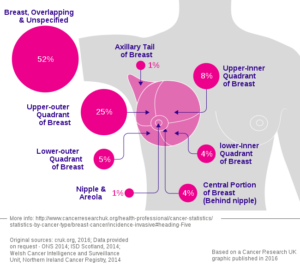Yasmin Qureshi Labour Member of Parliament for Bolton South East
Recently I asked the Secretary of State for Health, what steps his Department will take to ensure that:-
(a) NHS patients across England benefit equally from access to NICE-recommended molecular diagnostic testing for breast cancer, and
(b) changes to NICE recommendations do not include removing recommended molecular diagnostic tests for breast cancer for patients currently accessing such tests.
I referenced the recent Report of the Independent Cancer Taskforce, and I asked what steps the Department is taking to urge NHS England to prioritise a Best Practice Tariff for NICE-recommended molecular diagnostic services for guiding adjuvant chemotherapy decisions in early breast cancer management.
I also pressed to hear what steps are being taken to support the implementation of Recommendation 37 of the Report of the Independent Cancer Taskforce on nationally commissioning access to molecular diagnostic tests for breast cancer in 2016.
Here is response I received from Jane Ellison, The Parliamentary Under-Secretary of State for Health, in full:
In July 2015, NHS England published a new Clinical Commissioning Policy: Genetic Testing for BRCA1 and BRCA2 Mutations. In accordance with the criteria set out in that document, NHS England will commission genetic testing for (breast cancer genes 1 and 2) BRCA1 and BRCA2 in those that have a pre-testBRCA1 and BRCA2 carrier probability risk of 10% or more as recommended inNICE clinical guideline (CG)164. The document is available at:
www.england.nhs.uk/commissioning/wp-content/uploads/sites/12/2015/10/e01pb-brca-ovarian-cancer-oct15.pdf
The independent Cancer Taskforce recognised the need for more accessible molecular diagnostic provision in its report, Achieving World-Class Cancer Outcomes, published in July 2015. NHS England is currently working with partners across the healthcare system to determine how best to take forward the Taskforce’s recommendations. A cross-system Cancer Transformation Board is being established to oversee implementation of the Taskforce recommendations, alongside an independent Advisory Group, chaired by Dr Harpal Kumar, Chief Executive of Cancer Research UK.
Regional Genetic Laboratories are central to all NHS Genomic Medicine Centres (GMCs) and have been the focal point for adoption of genomic technologies into healthcare for over 40 years. These laboratories are currently the focus of an NHS England Specialised Commissioning intended procurement exercise. The procurement aims to create a new genomic laboratory infrastructure for the National Health Service in England based on centralised and local genomic laboratory hubs to support rare, inherited and acquired disease as well as the future personalised medicine requirements inclusive of molecular diagnostics in stratified medicine.
In addition, in September 2015, the NHS England Board approved the development of a Personalised Medicine Strategy for the NHS by March 2016. The Strategy will build on the 100,000 Genomes Project, in which the NHS is a key delivery partner. The Project will sequence whole genomes from eligible patients with rare diseases and cancers.It is moving the NHS to a new model of diagnosis and treatment based on understanding of underlying genetic causes and drivers of disease and a comprehensive phenotypic characterisation of the disease (rather than deduction from symptoms and individual diagnostic tests).
The high-level vision and strategy is to create a Personalised Medicine service embracing four overarching principles: the prediction and prevention of disease; more precise diagnoses; targeted and personalised interventions; and a more participatory role for patients. Personalised medicine informs the selection of the most appropriate treatment and better outcomes for individual patients -; the right drug at the right time, earlier screening and treatment, smarter monitoring and the adjustment of treatments.
You can read more about my work in Parliament and look into other specific issues I have raised on your behalf at http://www.theyworkforyou.com. Alternatively, please see the contact section (which you will find in the top right-hand corner of this page) and I will be happy help you.
-Yasmin

